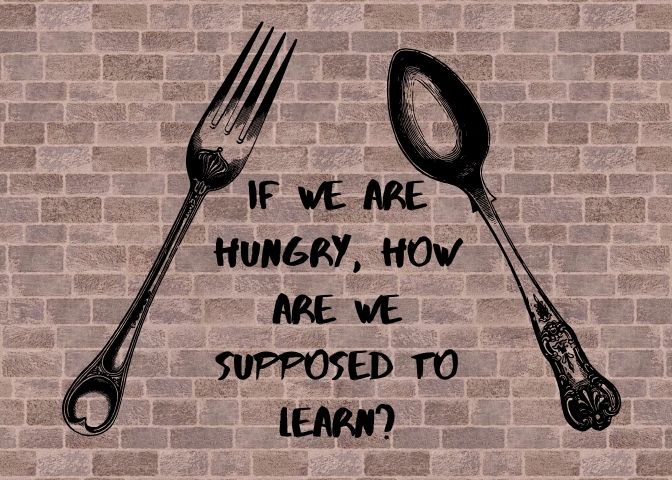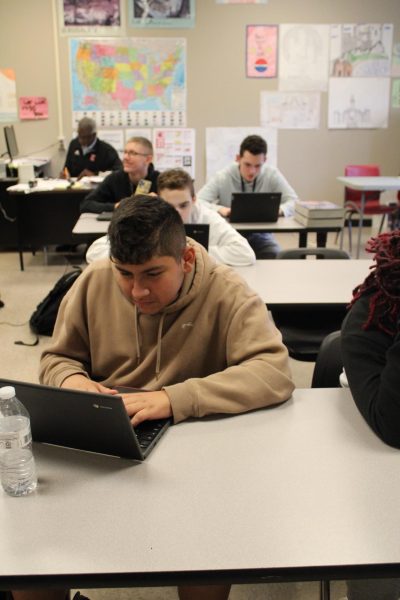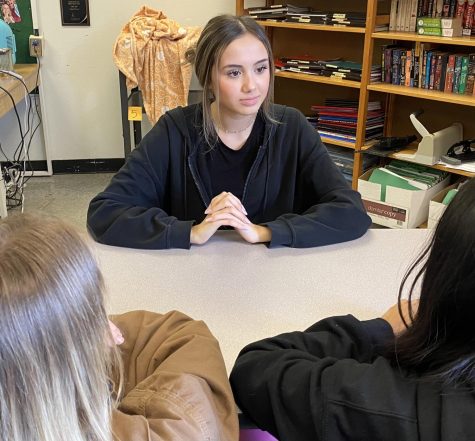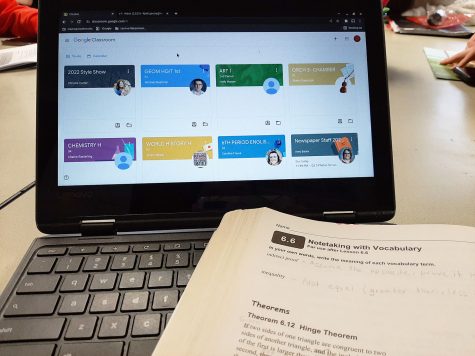Poverty, how it affects students at school
Design made by Carlie Massey using Canva.com
KISD fights hunger by providing breakfast for students.
In America, there are 39.7 million people living in poverty, this includes 15 million children. Twenty-one point eight percent of American children and teens are having to fight a constant battle of finding food, going to school, and managing to make it through another day. Many of these students are neglected by their schools. They are seen as an issue rather than a human who is struggling. Schools should be helping these students who are experiencing poverty.
The “Poverty Line” is defined as a family of four earning less than $23,021 according to the 2011 U.S. Census Bureau. Students who are living through poverty regularly go to school without breakfast and can seldom afford to bring or buy a lunch. A study was done in 2008 by Nikki L. Aikens at Mathematica Policy Research, Inc as well as Oscar Barbarin at the University of North Carolina at Chapel Hill. This study proved that not eating enough food can reduce the brain’s ability to learn new information. Students living in poverty can end up behind their peers academically due to this. In order to combat this, all students at KISD who need breakfast are provided it. Additionally, children who watch acts of violence in their home or face constant household stress can cause learning limitations. This is due to the child being unable to understand and deal with the situation.
Students who are living in poverty tend to be extremely stressed, causing stress hormones to be triggered. These hormones hold back the brain’s development. This results in an inability to pay attention, control emotions, or develop memory functions correctly. Those who live under the poverty line are 1.3 times more likely to have learning disabilities over those who don’t come from poverty.
It has been proven by the same study done in 2008 that poor school conditions affect students mentally just as much as bad parenting does. When teens going through poverty are neglected, they are not taught about what possible careers they could obtain. If teens going through poverty are neglected, their true potential is not reached and they are left unfulfilled with the rest of their life. Teens graduate high school believing that earning money is better than having a good career. It is not that those going through poverty are unmotivated, it is that those going through poverty are not given enough information to help themselves grow financially, academically, and mentally. The dropout rates of teens and college students from those living in poverty is significantly higher than those who do not struggle with money. Less than 30% of students living in deep poverty enroll in a four year school. Only 50% of them graduate.
To help with the issue of low-income children dropping out or giving up academically, Kilgore College offers a program called Upward Bound. This program is for high school students who come from low-income families or high school students whose parents do not have a bachelor’s degree. Upward Bound encourages high school students to move on to college after graduating. While Upward Bound is primarily for those who come from low-income families, it is also for those who are interested in diving into their education and seeing what it’s like to be on a college campus. Upward Bound was created to open doors to high school students willing to walk through them.
Students should not have to leave their home that is in poverty to attend a school that does not care about their needs and desires. If a student wants to grow but does not have the resources, the schools should be able to provide those resources. Poverty is hard, schools should not make it harder.











